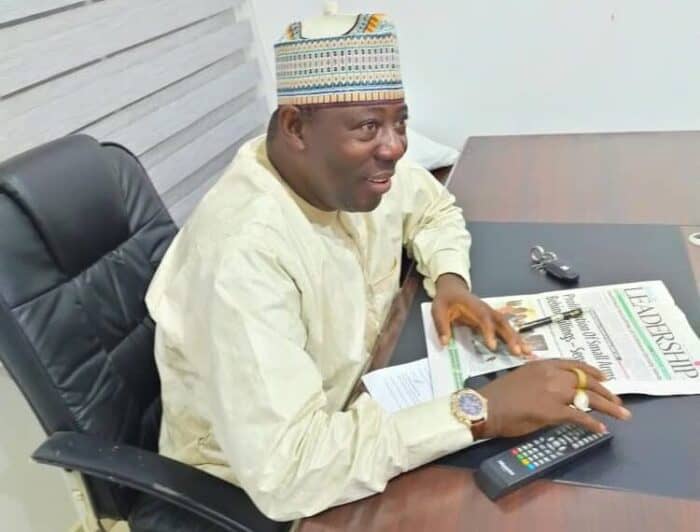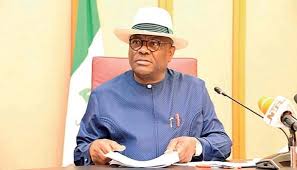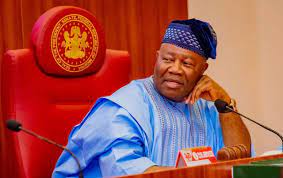Shelter is a fundamental human right, ranking second only to food in importance. Yet, Nigeria faces a significant housing deficit, estimated at 28 million units as of 2023. With the complex issue of housing affordability and accessibility in Nigeria and the historical efforts, not a few Nigerians are viewing the current initiatives by President Bola Ahmed Tinubu under the coordination of Housing Minister, Ahmed Musa Dangiwa, as another hoax.
Nigeria’s housing deficit has grown steadily since independence, fueled by various factors. While earlier concerns focused on mortgage inefficiency, the problem has evolved to encompass rapid urbanisation, population growth, slum demolition, poverty, and rural-urban migration. This intricate interplay has resulted in a 300% increase in the housing deficit over the past three decades, exceeding population growth by nearly double.
Efforts to bridge the housing gap have been undertaken by various administrations. Notably, the Shehu Shagari government, which berthed Shagari Low Cost Housing in every corner of the country. The late General Sani Abacha’s military regime saw significant housing projects, including Gwarinpa estate in Abuja. However, these initiatives often fell short of addressing the broader national need.
Recognising the urgency of the issue, the Tinubu administration appointed Ahmed Musa Dangiwa, a former Managing Director/CEO of the Federal Mortgage Bank of Nigeria, as Housing Minister. Dangiwa’s experience and understanding of the sector are seen as assets in tackling this complex challenge.
A key initiative under Dangiwa’s leadership is the “Renewed Hope Cities and Estates Programme,” aimed at constructing 100,000 housing units across the country through Public-Private Partnerships (PPPs). The programme’s first phase focuses on 20,000 units in the Federal Capital Territory (FCT), with a pilot project of 3,112 units already under way.
This initiative emphasises affordability, accessibility, and job creation. President Tinubu has directed the construction of access roads to these new estates, acknowledging the importance of connectivity and infrastructure development. Additionally, the programme is projected to generate 500,000 jobs in the FCT alone.
While the Renewed Hope programme represents a significant step by the president, several challenges remain. The estimated N21 trillion required to address the national deficit necessitates substantial investment, exceeding the current average annual investment of N7.47 trillion in the real estate sector. Furthermore, population growth will continue to outpace construction unless addressed concurrently.
Other concerns include ensuring the programme’s transparency and accountability, guaranteeing affordability for low-income earners, and effectively integrating new housing developments with existing infrastructure and social services.
The Potential Impact and Concerns: The programme holds promise by potentially creating jobs, stimulating economic activity, and providing access to improved housing for some Nigerians. However, several concerns require careful consideration.
1. Sustainability:
Can the PPP model ensure long-term affordability and maintenance of the housing units? Will the programme benefit low-income earners sufficiently?
Transparency and Accountability: Ensuring transparent allocation of resources and preventing corruption is crucial for public trust and programme success.
Inclusivity and Displacement: Will the programme exacerbate existing inequalities by primarily catering to higher-income groups? How will potential displacement during construction be addressed?
Infrastructure Development: Building housing units alone is insufficient. Access to essential infrastructure like transportation, water, sanitation, and healthcare is equally important for creating sustainable and livable communities.
2. Increase Investment and Funding:
Public-Private Partnerships (PPPs): What the Tinubu administration should do is to expand and improve PPP models like the “Renewed Hope Cities and Estates Programme” with stricter transparency and accountability measures. Encourage diverse private sector participation and ensure affordability for low- and middle-income earners.
Targeted Subsidies: The Tinubu administration should implement targeted subsidies for specific demographics or housing types (e.g., social housing for low-income families) to maximise impact and avoid misuse.
Housing Microfinance: Facilitate access to microfinance loans for individual homeownership or small-scale developers, focusing on financial literacy and loan repayment support.
Tinubu and his minister, Ahmed Musa Dangiwa, must enhance policy and regulatory framework to streamline approval processes, reduce bureaucratic hurdles and delays in obtaining building permits and land titles to encourage faster construction and investment.
Standardise Building Codes: They must also implement and enforce national building codes that ensure quality, safety, and affordability while considering regional variations and local materials.
Land Use Reform: Address land ownership complexities and facilitate access to affordable land for developers, particularly in urban areas.
3. Promote Innovation and Technology:
Sustainable Construction Methods: Encourage the use of innovative and sustainable construction materials and technologies to reduce costs and environmental impact.
Modular Housing: Explore the potential of modular housing for faster and more efficient construction, particularly for affordable housing projects.
Digital Platforms: Utilise digital platforms to improve transparency in housing allocation, land titling, and construction monitoring.
4. Address Underlying Challenges:
Urban Planning: Invest in comprehensive urban planning that considers housing needs, infrastructure development, and job creation within cityscapes.
Poverty Reduction: Implement broader poverty reduction strategies to increase affordability and access to housing for low-income Nigerians.
Education and Skills Development: Equip individuals with the skills and knowledge needed for employment in the construction sector, creating jobs and boosting the housing market.
5. Collaboration and Stakeholder Engagement:
Engage with communities: Involve communities in planning and decision-making processes to ensure housing solutions meet their needs and avoid displacement.
Collaborate with civil society: Partner with NGOs and community organisations with expertise in housing and development to leverage their knowledge and networks.
Promote regional cooperation: Explore regional partnerships and knowledge sharing to learn from successful housing initiatives in other African countries.
Remember, tackling a complex issue like the housing deficit requires a multi-pronged approach and sustained commitment. Evaluating the effectiveness of implemented policies and adapting them based on data and feedback will be crucial for achieving long-term success.
The fear is that with the porous nature of the nation’s economy, coupled with its inflationary trends, the prospective home owners may never be realised, as today vast majority of Nigerians, especially those residents in Abuja and other cities of the country, are not finding it easy to have a roof over their heads. The renewed hope initiative should ensure that residents, developers, public and private sectors are involved, with structured schemes that allows tenants to acquire their Houses, pay rent over a period of time and own these houses specifically.
Above all, President Tinubu must develop thick skin and deaf ears to certain criticisms. He should understand that people who really can’t communicate think everything is an argument, and people who lack accountability think everything is an attack. Sometimes people don’t want to hear the truth because they don’t want their illustrations destroyed.
Tackling Nigeria’s housing deficit requires a multi-pronged approach, encompassing government initiatives, private sector investment, and community engagement. While the Renewed Hope programme offers renewed hope, its success hinges on overcoming significant financial, logistical, and social hurdles. Addressing these challenges effectively will determine whether this initiative truly bridges the housing gap and provides Nigerians with the decent and affordable shelter they deserve.
Good enough, President Tinubu’s choice of Dangiwa as minister of Housing is a demonstration of the president’s knack for identifying talents and make the best out of them. Architect Dangiwa transformed the NHF within five years, leading his team to mobilise N279 billion in additional contributions to the NHF scheme at an average of N55.8 billion per annum.
He was able to do this by ensuring transparency and accountability in the management of the NHF scheme, engaging state governments to resume contributions to the NHF scheme and building strategic partnerships with labour centers such as the Nigeria Labour Congress (NLC), Trade Union Congress (TUC) and the Nigeria Employers Consultative Association (NECA).
With these kind of antecedents, Nigerians should not be surprised to discover that they have a minister who will be willing to personally monitor work at construction site everyday to avoid manipulation and use of fake building materials. This is a man who will adhere to the Renewed Hope agenda and follow the president’s direction, as far as he knows that direction will yield results. Under his watch, there’ll be no room for money laundering, corruption, and other related offences in the building sector, as he will ensure President Tinubu’s fight against corruption is won.
For my fellow citizens, Nigerians, it is time we drew the distinction between constructive criticism and political propaganda orchestrated by opposition, aimed to influence and instigate us into unnecessary crisis as a result of their selfish desires. We expect these political jobbers to rally support for President Tinubu’s anti-graft war.
God bless Nigeria.




